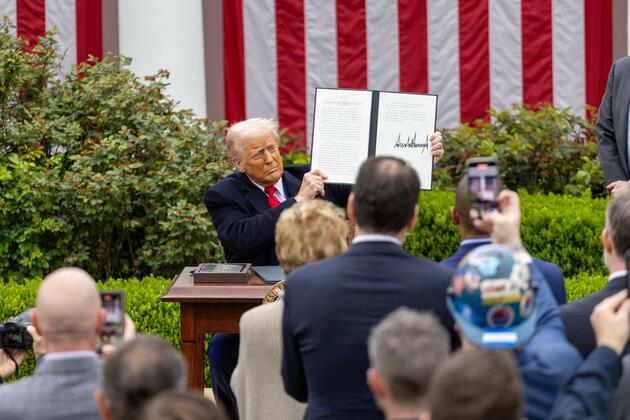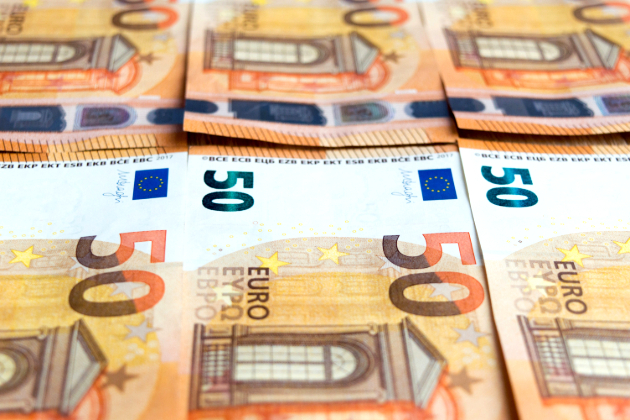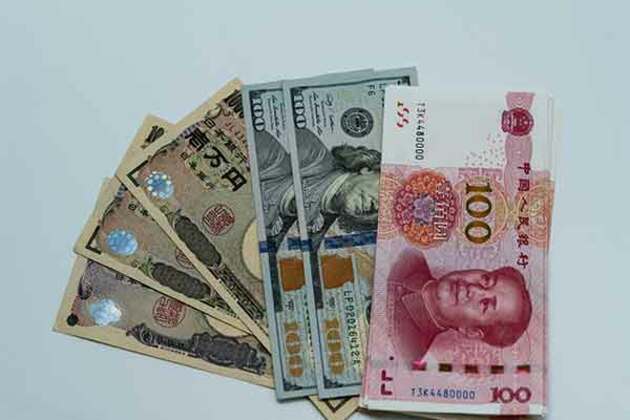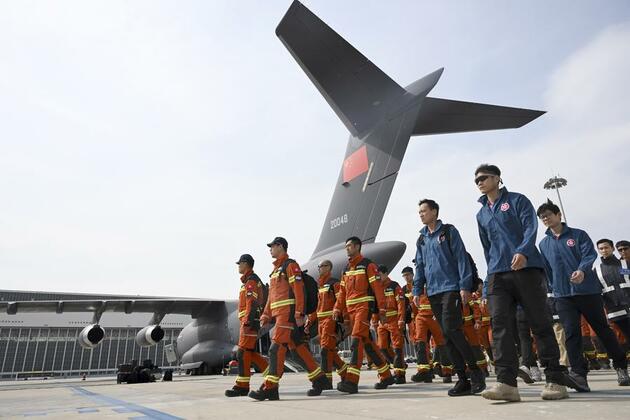Xinhua Commentary: Trump's "reciprocal tariffs" a manifestation of Washington's modern-day piracy
Xinhua
10 Apr 2025, 13:15 GMT+10

Beneath Washington's relentless trade practices lies a deeper truth: the enduring legacy of a piratical past, now institutionalized as policy and disguised in rhetoric of fairness, rules and security.
BEIJING, April 10 (Xinhua) -- U.S. President Donald Trump last week unveiled the so-called "reciprocal tariffs" on most trading partners, claiming that the move, which has triggered significant global market volatility and fueled concerns about a potential recession, would make the world's largest economy "wealthy again."
Beneath Washington's relentless trade practices lies a deeper truth: the enduring legacy of a piratical past, now institutionalized as policy and disguised in rhetoric of fairness, rules and security.
Washington's trade aggression has deep roots in imperial history. In the 16th and 17th centuries, Britain's rise to global power was fueled by privateers -- state-sanctioned pirates authorized by royal "letters of marque" to attack rival ships and colonies. These licensed raids funded naval expansion, disrupted Spanish dominance, and paved the way for English colonization in the Americas.
The passengers aboard the Mayflower in 1620 -- often mythologized as spiritual refugees -- were, in reality, the first English colonists in North America, deeply embedded in Britain's expanding imperial enterprise. Their so-called "city upon a hill" was built on violently seized land, justified through scripture and sustained by relentless extraction. What began as maritime piracy gradually evolved into a settler-colonial model that blended conquest with moral justification.
That fusion, or confusion, persists today. In the modern era, U.S. foreign and trade policy still reflects this "pirate ethic" -- a kind of narrative alchemy that transforms plunder into providence, aggressors into guardians, and competitors into existential threats.
From the 1985 Plaza Accord, which forced Japan to sharply revalue the yen, triggering the collapse of its economic boom and ushering in the "lost decades," to the structural adjustment programs imposed on Latin American countries following their 1980s debt crisis, Washington has routinely wielded economic leverage to extract concessions. It posed as a partner but operated like a modern pirate, dragging weaker nations to the negotiating table under terms already decided.
Trump repeated the playbook. While claiming "for decades our country has been looted, pillaged and raped," he framed the new tariffs as an act of restraint, claiming, "We are being very kind," as if the United States, a superpower wielding a stick, is the one being beaten.
This reflex -- feeling threatened even while in a dominant position -- is deeply rooted in a pirate ethos shaped by fear and perpetuated by a perpetual sense of being under siege. As French political scientist Dominique Moisi noted, U.S. foreign policy is steeped in fear: fear of decline, of competition, and of losing primacy.
This fear fosters a zero-sum worldview, where the rise of any other nation is, by default, perceived as a loss for the United States. Even its allies are not exempt from this mentality.
In 1987, Japan's Toshiba was sanctioned by Washington for selling precision tools to the Soviet Union, citing "national security." In 2014, France's Alstom was prosecuted under U.S. anti-corruption laws and was subsequently pressured to sell its energy division to General Electric. Between 2019 and 2021, Washington imposed sanctions on European firms tied to Nord Stream 2, undermining the continent's energy autonomy.
China, seen as a long-term competitor by the United States, has faced a far more systematic and expansive range of coercive measures, including tariffs on billions of dollars' worth of goods under Section 301, export controls targeting critical technologies like semiconductors, investment bans on firms deemed "national security threats," and sweeping sanctions on Chinese tech firms. Although each measure is justified as a matter of national security or fair competition, the underlying motive is simply to contain an imaginary adversary.
After World War II, the United States initially positioned itself as a trustworthy power. Some countries, believing in its promises, tied their futures to the system Washington claimed to defend.
However, war, coercion, blame and extraction, once exceptions, transitioned to the norm over time. Eventually, the mask slips, and the narrative no longer holds. The United States is nearing that tipping point.
 Share
Share
 Tweet
Tweet
 Share
Share
 Flip
Flip
 Email
Email
Watch latest videos
Subscribe and Follow
Get a daily dose of Greek Herald news through our daily email, its complimentary and keeps you fully up to date with world and business news as well.
News RELEASES
Publish news of your business, community or sports group, personnel appointments, major event and more by submitting a news release to Greek Herald.
More InformationInternational Business
SectionEU official warns of harsh impact from new US tariffs
ATHENS, Greece: As Europe braces for the economic fallout of new U.S. tariffs, a top eurozone official has warned the consequences...
Vegetable oil price surge stabilizes global food costs in March
PARIS, France: A spike in vegetable oil costs helped steady global food prices in March, offsetting declines in other staples like...
Xinhua Commentary: Trump's "reciprocal tariffs" a manifestation of Washington's modern-day piracy
U.S. President Donald Trump shows an executive order on reciprocal tariffs at the Rose Garden of the White House in Washington, D.C.,...
Indian-origin stars Theegala, Bhatia seek Masters glory at Augusta
Augusta [US], April 10 (ANI): Three players of Indian origin, all of whom have tasted success on the PGA Tour. Sahith Theegala and...
Yuan sinks to 19-month low as China loosens currency grip
Shanghai [China], April 10 (ANI): China's currency slumped to its lowest level against the US dollar in over a year and a half on Tuesday,...
RBI's policy stance turning accommodative shows signs of easing: SBI Report
Mumbai (Maharashtra) [India], April 10 (ANI): The Reserve Bank of India (RBI) has taken a more accommodative stance in its monetary...
Mediterranean
SectionEU official warns of harsh impact from new US tariffs
ATHENS, Greece: As Europe braces for the economic fallout of new U.S. tariffs, a top eurozone official has warned the consequences...
Xinhua Photo Daily | April 10, 2025
BEIJING, April 10 (Xinhua) -- A selection of the best press photos from Xinhua. Members of the search and rescue team from the Hong...
MLB roundup: Pirates get past Cardinals in 13
(Photo credit: Charles LeClaire-Imagn Images) Joey Bart's walk-off single with the bases loaded in the 13th inning lifted the host...
Mauritius hosts SolarX Accelerator Programme in partnership with ISA, Business Mauritius
Moka [Mauritius], April 10 (ANI): Mauritius has launched the SolarX Accelerator Programme in partnership with the International Solar...
Joe Ryan, Twins shut out Royals
(Photo credit: Jay Biggerstaff-Imagn Images) Joe Ryan continued his mastery of Kansas City hitters by tossing two-hit ball over seven...
Egypt condemns Israeli closure orders to UNRWA schools in East Jerusalem
Cairo [Egypt] April 10 (ANI/WAM): Egypt strongly condemned on Wednesday the Israeli occupation's closure orders for six schools operated...











